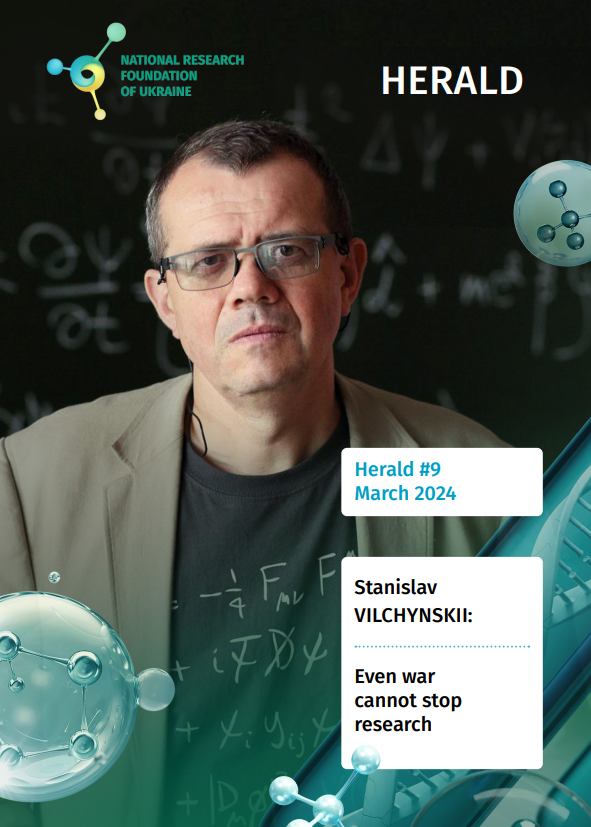
Stanislav Vilchynskii became Head of the National Research Foundation of Ukraine at the most difficult time – right before the beginning of russia’s full-scale war against Ukraine. What challenges has the Foundation faced over the past two years, how and where did it seek (and find) grant funding, and what issues does it plan to address in 2024?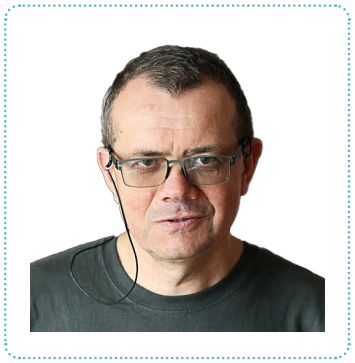
And another question: what does it mean to be Head of the Foundation during the war? This is what we were talking about with Head of the NRFU, Chairman of the Scientific Council of the Foundation Stanislav VILCHYNSKII.
– Professor Vilchynskii, the decision to appoint you as the Head of the NRFU was made by the government on February 23, 2022. The next day, russian tanks entered the territory of Ukraine, and the full-scale war began. What were the first decisions you had to make as Head of the NRFU?
– I would like to emphasize that the main decisions on the work of the Foundation are made by the Scientific Council. It was, is and will be the governing body of the NRFU.
On March 10, according to a decree of the government, the Foundation’s funds were transferred to the country’s defense needs. Accordingly, on March 15, the Scientific Council made a decision to suspend grant support provided by the NRFU and the competitive selection procedures. Research teams that had been implementing more than two or three hundred winning projects were left without funding… Two calls for proposals were drawing to their finalization, the winners of one of which were to receive substantial funds for the purchase of research equipment.
Of course, it was a difficult decision, but we realized that the needs of Ukraine’s defense were the most priority.
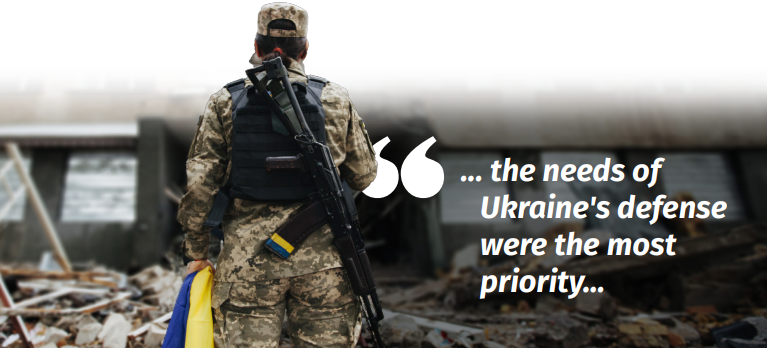
– How did you manage to resume the funding? How did you look for international partners?
– Grant support from the state budget was resumed in 2023. Despite the country’s difficult financial situation, the government found funds for NRFU projects. I think a good argument for the resumption of the funding was the results of our work before the war.
I am grateful for the support of the Verkhovna Rada Committee on Education, Science and Innovation and its Chairperson Serhiy Babak and the team of the Ministry of Finance of Ukraine who listened to and heard our arguments.
From the first days of the full-scale war, Executive Director of the Foundation Olga Polotska, members of the Scientific Council and Supervisory Board of the NRFU, renowned researchers (who later joined the NRFU Board of International Counselors) engaged all possible contacts and sought for sources of international funding for the Foundation.
For instance, they quickly contacted the Swiss National Science Foundation (SNSF). At the beginning of the war, this Foundation provided substantial financial support (and continues to do so) to more than a hundred Ukrainian refugee researchers (providing individual two-year research grants of up to 180,000 Swiss francs each). Later on, after another round of negotiations with the SNSF leadership, an agreement was reached to hold a bilateral Swiss-Ukrainian call for research projects for Ukrainian researchers remaining in Ukraine. The Swiss colleagues are fully funding this call. The final amount has not yet been fixed, but it is approximately 8 million Swiss francs (i.e., more than 8 million euros). These are substantial funds. We launched this call in 2023 and received more than a hundred applications.

In fact, the decision to hold a bilateral call was made very quickly, but it took a long time to make the appropriate amendments to the legislation to enable the NRFU to engage in bilateral calls.
Thanks to the members of the Scientific Committee Oleksiy Kolezhuk and Oleksandra Antoniuk; Professor of Physics at Leiden University Oleksiy Boyarsky, and Director of the Max Planck Institute for Physics Georgi Dvali, we managed to contact several German foundations, including the DFG (the German counterpart of the NRFU), and now we are working with German colleagues on design of joint calls.
The University of Cambridge also funded a call for Ukrainian researchers directly affected by the war. This call became possible thanks to the efforts of the Executive Director of the Foundation Olga Polotska who also managed to establish contacts with many other research foundations around the world, and now we have financial support for competitive selections from the Netherlands and the United States.
It has been a huge, systematic teamwork. We were well aware of the situation the country was in, had negotiations abroad, and communicated our plans and needs. And the world heard us.
– What was it like in the first days of the full-scale invasion? Did you feel the support of colleagues from international research organizations?
– Yes! Both friends and strangers texted and called me. On February 1, 2022, I began a planned research visit to Switzerland, and on the second or third day of the full-scale war, CERN Director Fabiola Gianotti expressed support for me and other Ukrainian researchers. She said that until the last moment she did not believe that this was possible, and that she personally and the entire CERN team supported the Ukrainian people and believed in the victory of good over evil.
CERN immediately set up volunteer aid centers for Ukrainians. Swiss people donated clothes, medicines and money. In fact, CERN stopped cooperating with russia and belarus as well as with researchers affiliated with research institutions in russia.

I was very emotional because that the war caught me in Switzerland and I really wanted to be in Ukraine with my family and friends… It was hard to concentrate on the research tasks that had to be accomplished during the visit.
– Looking back to 2022 and 2023, what challenges in your opinion were the toughest for the Foundation?
– The most important thing was for the Foundation to go on working and fulfilling its tasks.
The staff of the NRFU Directorate demonstrated resilience, courage and endurance, and despite the fact that some employees joined the Armed Forces of Ukraine, the Foundation continued its work: it sought funding and planned new calls.
For our grantees, the suspension of funding was a big challenge. But despite this, many teams continued their work. For example, my colleagues from the Faculty of Physics at Taras Shevchenko National University of Kyiv, who implemented the projects of the ‘Support for Research of Leading and Young Scientists’ call, went on with their work.
You see, science does not start at 9 am and does not end at 6 pm, and even war cannot stop research. When researchers have at least the slightest opportunity to work, they do so. Science is like a good detective story: you have a problem and look for ways to solve it. Of course, such work does not stop even if grant funding is suspended.
I am proud of our grantees: in difficult conditions and challenging situations most of them continued doing research. People rescued equipment, ran experiments, and made publications. I can see this in the reports we receive.
I am sure that many books will be written about the experience of Ukrainian researchers during the war.
– How has the Foundation changed over the two years of the full-scale war?
– The Foundation has become stronger and more resilient. We have more international partners and more financial support. In 2023, the Horizon Europe Office in Ukraine was launched on the basis of the NRFU, and its employees help researchers understand the priorities, structure and directions of the framework program.
More calls have been launched during the war than before the full-scale invasion. Just in the fall of 2023 four calls were announced. Our legal framework has been strengthened as legislation has been amended.
The staff of the NRFU Directorate is very strong today, it is a team of professionals who effectively cope with their duties.
The Foundation has gained many more friends over these two years. Although, it should be said, there are plenty of ill-wishers as well. From the very beginning, many officials, employees and, unfortunately, researchers, met the launch of the Foundation with hostility. And despite the fact that the Foundation does a lot of good, the voices of ill-wishers can still be heard today.
– How do you react to unfair criticism?
– I treat criticism calmly. If the criticism is constructive, I am grateful and draw conclusions.
Unfair criticism (against me or against the Foundation) does not throw me off balance. I am convinced that we do everything honestly and correctly. Perhaps we make some mistakes, but they are sincere mistakes that we try to correct. We never play undercover games.
We often hear criticism that reporting requires too much paperwork. Of course, researchers want to do research, not papers and reports. But there are requirements of regulations that we have to comply with. That is why we submit proposals for amendments in the legislation, and if we can amend it, we do.
Our philosophy isasfollows: we closely follow the criticism and try to improve our work.
But, unfortunately, sometimes ‘criticism’ which appears on Internet pages causes only laughter and surprise. We understand who is the requestor of such ‘criticism’ and for what purpose it is published. The NRFU has ill-wishers who have from time to time tried to interfere with our work and who are unlikely to calm down (let’s just mention the former officials of the Ministry of Education and Science who have repeatedly tried to paralyze the work of the Foundation).

The Foundation receives funds from the state and works hard to distribute them fairly and efficiently among the best research teams in the country. Previously, when distributing such support, it was a priori clear who and how much money would receive. People who were involved in the distribution based on other principles cannot calm down. In behind-the-scenes conversations, I heard open accusations claiming “you took away our funds”.
It is a great achievement (in particular, of the Scientific Committee) that we managed to create the National Research Foundation of Ukraine and ‘break’ the practice of such distribution. Today, I hope, these funds are distributed fairly, and the best research groups receive them.
The fact that the Foundation was authorized to create the ‘Horizon Europe Office in Ukraine’ has also caused some negative reaction. I heard accusations that it is easy to negotiate when “sitting abroad” and that the Foundation is taking over what it should not. I replied that no one was stopping anyone from going abroad and negotiating. But these ‘accusers’ don’t even try to do anything, they just sit back and wait for everything to fall into their hands.
It is very good that the current Ministry of Education and Science of Ukraine is completely different, we feel the support of both the Minister and the Deputy Minister for Science.
– In 2023, the Government amended some decrees related to the activities of the NRFU. In particular, the Foundation was given the opportunity to launch calls in all areas of grant support provided for in the Law ‘On Scientific and Scientific – Technical Activities’. Of course, during the war it is difficult to talk about the timing of the realization of dreams and plans, but still, what are the prospects for taking at least the first steps towards providing grant funding in these areas?
– These amendments are extremely important, they expand the range of our capabilities, allow us to reach a new level of grant support for the development of the material and technical base of institutions of higher education and research institutions, their research infrastructure, research mobility, support for early-career researchers and popularization of science.
It is very important that we have the opportunity to launch calls to support early-career researchers. I hope we will be able to take advantage of this opportunity in the near future.
I remember the time when I was a young scientist well. I know that almost every early-career researcher goes through a phase of acute lack of money. While writing and defending your thesis, you have to think: what’s next? Will I be able to earn enough to support my family? These are quite heavy thoughts and tough decisions.
The issue of restoring the research potential of Ukraine is very acute, and not only in Ukraine. Powerful corporations, banks, and other institutions are willing to hire early-career researchers who have a PhD degree. This is a significant loss for the research community because if there is no changeover, then how can research schools develop?
Implementors of the NRFU projects have decent labour remuneration (its level is good not only for Ukraine). This allows young scientists to focus on research and not waste time on part-time jobs in non-scientific fields. I am confident that we will be able to support at least some of early-career researchers at the beginning of their research careers. This will be a strong argument for returning to Ukraine from abroad as well.
We also need to create centers of research excellence with equipment, working conditions, and decent salaries. That is why we have launched a call, the purpose of which is to facilitate the development of the research infrastructure.
– I cannot help but ask about grants for popularizing science. Are there any plans for such a call?
– Popularization of research and research results is extremely important. I am convinced that every researcher should be involved in this.
Figuratively speaking, there is a constant struggle between light and darkness, and research is the basis for the progress and development of mankind. An average citizen does not always understand why research is needed and why research should be funded. Also, why it is worth choosing scientifically proven methods of treatment…
For example, I can see the controversy surrounding the activities of CERN where the Large Hadron Collider (LHC) was built. The study of elementary-particle physics helps to get closer to answers to questions about the structure and origin of the Universe, but some religious structures are aggressively opposed to its operation. People were frightened that the LHC could lead to an ecological and environmental disaster and even the apocalypse. Of course, these ‘horror stories’ are fiction, but there are always people who tell such stories. That is why the CERN Directorate is actively conducting popularizing activity. A person from any country can come here for a tour, learn about what researchers are studying and how, and why it is important.
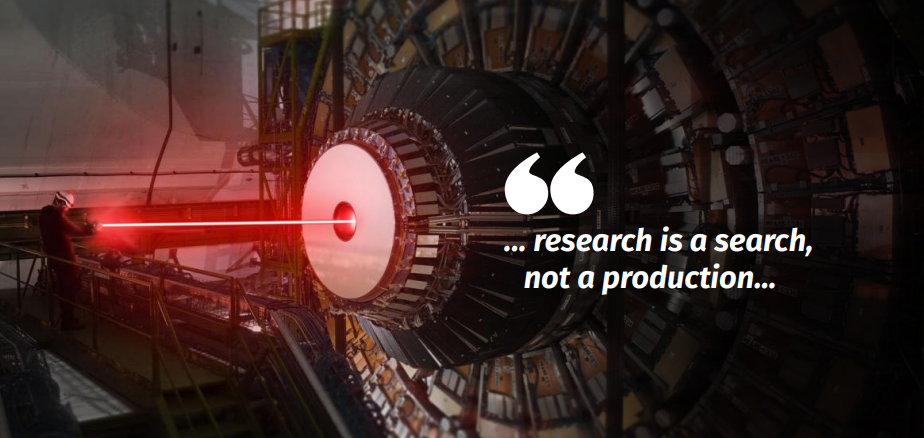
…If taxpayers understand why it is necessary to support research, then politicians understand as well and vote for the allocation of funds from the public budget.
Of course, not all research can be successful. Sometimes, when we provide grant support to a project, we take risks. After all, research is a search, not a production where you can invest money and get a guaranteed product.
– Many of the projects being funded by the NRFU are of applied importance. How can you help researchers implement the results of their projects?
– We facilitate such implementation, and the terms and conditions of some calls state that participants are to have established contacts and letters of guarantee that the results of their work will be implemented. For example, there is such a condition in the call ‘Science for the Recovery of Ukraine in the War and Post-War Periods’. We will see what happens in practice (it will be visible in the final reports).
In the summer of 2023, the NRFU together with the Ukrainian Startup Fund held the Innovation Breakthrough Day. Project implementers learned how to pitch the results of their research, find a common language with business, and tell about research prospects to government officials and MPs. This is important knowledge, and I am sure it will be useful to research teams.
– What do you think are the most important tasks facing the Foundation is facing in 2024?
– Raising funds for Ukrainian researchers in Ukraine, search for new contacts and new opportunities, and improving the terms and conditions of calls.
A very important task is to strengthen the Foundation’s database of reviewers because the results of calls directly depend on the quality of their work.
I am always very sorry when people prepare a project but it is rejected on formal grounds. This is due to imperfections in the regulatory framework. So we are working in this direction, trying to eliminate contradictions.
We are finalizing the NRFU Strategy for the next three years. I hope that we will be able to create a code that will guide those who will come after us.
At the end of 2024, a significant ‘rotation’ of the Scientific Council is to take place, and the people who stood at the roots of the Foundation’s work will leave. These people have done titanic work, prepared the regulatory framework for the Foundation, the regulations for calls, etc. I really wish the vector of activity that we have managed to set will be maintained in the future, and that people with similar values, for whom the work of the Foundation is important, will join the Scientific Council.
I hope that the Strategy will contribute to this.
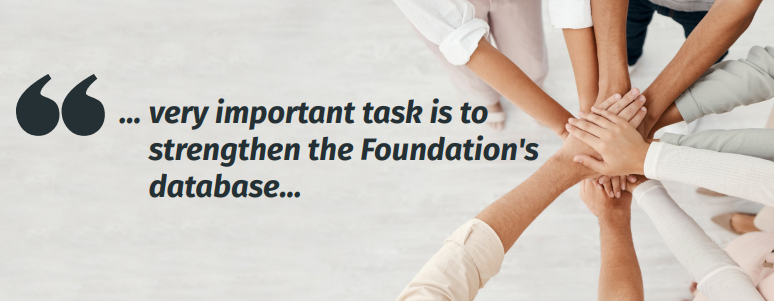
– The Scientific Council works on a voluntary basis, and the workload is considerable. What is the argument for researchers to work in the Council? And what is the argument for you personally to work in the Council?
– When I was nominated as a member of the Scientific Council, I had no doubt that working on a voluntary basis was the right thing to do. On the contrary, it was a big ‘bonus’ for me that the members of the Scientific Council work on a voluntary basis. And I would have thought twice about joining the Council if it was about salary. Because when you work for a salary, you still lose some freedom. A person running for a member of the Scientific Council should understand this. They will not apply for calls and will not receive a salary. And this is the right thing.
Working in the Scientific Council is a big responsibility. When you get the opportunity to influence the development of research and technical infrastructure of the state, you should understand that this is a very responsible job that requires a lot of time. It came as a big surprise to me that so much time was spent on the Foundation’s affairs. But as they say ‘in for a penny, in for a pound’.
– Professor Vilchynskii, what was it like to be Head of the Foundation during the war?
– To be honest, I haven’t thought about it. There is today, there are challenges to respond to, issues to solve. This is work and responsibility. Before I became Head of the Foundation, I was Deputy of Professor Leonid Yatsenko (former Head of the NRFU), and I remember that he was constantly worried and concerned about everything. When I came to this position, I also started to worry a lot. I feel responsible for the decisions made by the Scientific Council and for the people.
The Foundation was created by researchers for researchers, and we cannot let anything go wrong.
Interviewed by Svitlana Galata

